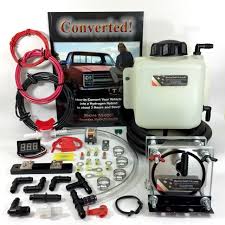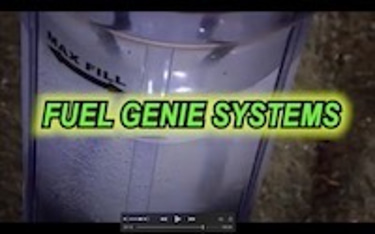Hydrogen For Cars
This article explores the impact of blending hydrogen with gasoline on the combustion performance of a gasoline direct injection (GDI) engine. Here's a summarized breakdown of findings and implications:
Performance Improvement: Blending hydrogen with gasoline enhances the combustion process in the engine, leading to increased peak cylinder pressure and peak heat release rate (HRR). This improvement in combustion performance is attributed to the acceleration of the combustion process due to the presence of hydrogen.
Increased Efficiency: The study indicates that higher hydrogen volume fractions (HVF) result in increased indicated thermal efficiency (ITE) of the engine. With an increase in HVF from 0 to 10.0%, ITE improves from 35.1 to 40.1% when the ignition timing (IT) is 2° CA ATDC (After Top Dead Center).
Emission Reduction: Hydrogen blending with gasoline leads to a reduction in emissions such as hydrocarbons (HC) and carbon monoxide (CO). This is due to more complete combustion facilitated by hydrogen addition, resulting in lower emissions of incomplete combustion byproducts.
Knock Resistance: Hydrogen has a high knock resistance and octane number, which enhances the knock resistance of the blended fuel. This allows for advanced ignition timing without increasing the risk of engine knock.
Combustion Acceleration: Hydrogen blending accelerates the combustion process by increasing the concentration of active hydroxyl (OH) radicals. This results in a reduction in ignition delay and combustion duration, leading to improved engine performance.
Emission Formation Mechanism: The study investigates the formation mechanism of emissions in hydrogen-gasoline engines. It suggests that hydrogen blending stabilizes ignition, accelerates combustion, and enhances thermal efficiency while reducing emissions such as CO and HC.
Combustion Mechanism Analysis: The simulation analyzes the combustion mechanism, including flame propagation and autoignition. It demonstrates that the presence of hydrogen affects the concentration of reactive species like CH2O and OH, leading to advanced autoignition and improved combustion efficiency.
Carbon Deposit Mitigation: Although not explicitly stated in the summary, hydrogen blending could potentially help mitigate carbon deposits in the engine due to more complete combustion and cleaner combustion products.
In summary, blending hydrogen with gasoline in engines offers multiple benefits, including improved performance, increased efficiency, reduced emissions, and enhanced knock resistance. These advantages contribute to the development of cleaner and more efficient internal combustion engines, aligning with the goals of reducing emissions and advancing sustainable transportation.
Miles Per Gallon
The above article was re-written from a scientific R&D study done by ACS Omega. They are another scientific body, like Science America, Elsevier, or another valid research foundation. They are located in Australia and give more scientific evidence outside NA that shows hydrogen kits do work.
We summarized the article above with an AI bot. This allows the article to be clean and well presented to the user should they wish to see scientific testing results viewed in laymen's terms this is what we try to do. Its all greek to me until it is deciphered properly. Hydrogen gas cars are way better and if you equip your car with our automotive hydrogen kit you will more miles per gallon with your Ford. Toyota miles per gallon, it gives all cars the best miles per gallon you can get when you convert your car for like, $1000. CDN. This is not he only study that proves things scientifically. We are finding new articles to present to you every day.
Simply because we think hydrogen automobiles are a great concept. The right HHO kits gives better mpg, a cleaner motor, more power, it is a 1000% performance upgrade. It saves on gas and also extends the life of your engine.
I have seen ford miles per gallon, Toyota miles per gallon, Honda Miles per gallon, go way up with our kits. Ford focus miles per gallon was unreal as a specific type of vehicle. We know F150 gives 35% better. Caravan miles per gallon is 35% better with our kits. We find some Toyota give 50 % better MPG. See the 4Runner pics...
We also bring decipher the article as there is a lot of questions as to does hydrogen really work? If you have the right kit and do not have to bastardize the motor it does... See the pictures of our kits on this website and on google. Look at the reviews done. These are done on OLD air breather 200 piece HHO kits where you had to modify the engine to get the kit to work, shown on the right. The scientific "inlab" testing, not real time testing verifies adding hydrogen might work. Real time is a different thing especially when you "modify" the fuel delivery system, drastically by installing a kit with over 200 parts. Don't forget this 200 piece kit idea started in a backyard garage, in the year 2000. The hydrogen kits the popular mechanic et al tested injected hydrogen through the air breather, NOT directly through the fuel injectors. There is quite a big difference or there could be quite a big difference in regards to the way this will effect engine performance, is this not quite possible? See our blog.






